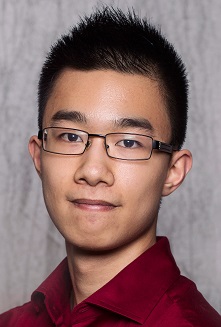The mandate of the ASNPN Executive Committee is to enhance research and professional networking opportunities for AllerGen research trainees, research staff and new professionals. The ASNPN Executive Committee comprises a maximum of 10 elected members and a past President. The Executive Committee is a national, multidisciplinary team, representing different regions, official languages, educational levels and AllerGen Legacy Projects and Enabling Platforms.
ASNPN Executive Committee (2017-2019)
[otw_shortcode_content_toggle title=”President – Laura Feldman, Hospital for Sick Children” opened=”closed”] Laura Feldman, ASNPN President
Laura Feldman, ASNPN President
Hospital for Sick Children
Laura is currently working as a Research Analyst with AllerGen Investigator Dr. Teresa To at the Hospital for Sick Children. Her work focuses on the use of health administrative data for asthma surveillance and the identification of risk factors for asthma. Laura received her B.Sc. in Environment and Health from The University of Toronto in 2014, and her Masters of Public Health degree from The Dalla Lana School of Public Health, University of Toronto, in 2016.
In 2015, Laura received an International Trainee Research Visit grant from AllerGen to conduct a 4-month-long research project at the Karolinska Institute in Stockholm, Sweden, under the supervision of Dr. Anna Bergström; the aim of her project was to assess the impact of early-life exposures to secondhand smoke on the risk of developing food hypersensitivity into adolescence. Laura is also a three-time recipient of the AllerGen Undergraduate Summer Studentship. She previously served as a member-at-large on the ASNPN Executive Committee, and as Vice-President in 2015–2017.
[/otw_shortcode_content_toggle] [otw_shortcode_content_toggle title=”Vice President – Loubna Akhabir, McMaster University” opened=”closed”] Loubna Akhabir, ASNPN Vice-President
Loubna Akhabir, ASNPN Vice-President
McMaster University
Loubna is currently a postdoc working with Drs. Judah Denburg and Guillaume Paré investigating genomic signatures in hemopoietic progenitor cells and pursuing other genetic epidemiology research questions, such as using mendelian randomization analysis to infer causal relationship between asthma and protein mediators as well as building genome-wide genetic risk scoring.
Loubna received her PhD in Experimental Medicine from the University of British Columbia (UBC) where she worked on AllerGen-funded projects, including investigating the functional consequences of asthma-associated genetic variants. She completed her first postdoctoral fellowship studying gene-environment interactions in future asthma development in Canadian high-risk birth cohorts and was involved in a genome-wide association study of peanut allergy. Loubna has been the recipient of several AllerGen travel awards and a research skills acquisition award to learn about genetic association analysis using next generation sequencing data in Germany. She was also an AllerGen CAIDATI recipient during her PhD and a CIHR Impact fellow during her postdoc term at UBC.
[/otw_shortcode_content_toggle] [otw_shortcode_content_toggle title=”Events Director – Mark Tenn, Queen’s University” opened=”closed”] Mark Tenn, ASNPN Events Director
Mark Tenn, ASNPN Events Director
Queen’s University
Mark is currently a M.Sc candidate in Microbes, Immunity and Inflammation under the supervision of AllerGen investigator Dr. Anne Ellis. His research focuses on understanding the role of the skin in allergy development. Particularly, the role of Filaggrin mutations in both allergic rhinitis and peanut allergy. Mark is also using the Nasal Allergen Challenge model developed as part of the AR-Clinical Investigator Collaborative (AR-CIC) to study group 2 innate lymphoid cells in allergic rhinitis. Mark received his BHSc from McMaster University.
In 2015, Mark received an AllerGen Summer Studentship to work with McMaster professors Dr. Mark Larche and Dr. Susan Waserman on the use of peptide immunotherapy for the prevention of peanut sensitization in a mouse model of peanut allergy. Having joined the ASNPN in 2014, Mark is an active trainee and has previously served a half-term as a Member-at-Large.
[/otw_shortcode_content_toggle][otw_shortcode_content_toggle title=”Communications Director – Jasemine Yang, University of British Columbia” opened=”closed”] Jasemine Yang, Communications Director
Jasemine Yang, Communications Director
The University of British Columbia
Jasemine is a PhD candidate in Experimental Medicine working under the supervision of Dr. Delbert Dorscheid at UBC’s Centre for Heart Lung Innovation in St. Paul’s Hospital. Her research focuses on studying mechanisms of normal airway epithelial repair and examining defects in these processes that contribute to the pathogenesis of asthma. Specifically, she is investigating the role of interleukin-13 receptors in normal airway epithelial repair and identifying relevant phenotypic markers in these signaling pathways that can be used to better phenotype asthmatic patients for biologic therapies. Jasemine received her B.Sc. in Cell Biology and Genetics from the University of British Columbia (UBC).
Jasemine has been an active member of the ASNPN and AllerGen-NCE throughout both her undergraduate and graduate program. She was an AllerGen CAIDATI award recipient and previously served as the Pacific Director of the ASNPN.
[/otw_shortcode_content_toggle][otw_shortcode_content_toggle title=”Pacific Director – Young Woong Kim, The University of British Columbia” opened=”closed”] Young Woong Kim, Pacific Director
Young Woong Kim, Pacific Director
The University of British Columbia
Young Woong is a Ph.D. candidate in Experimental Medicine at the University of British Columbia studying under the supervision of Dr. Scott J. Tebbutt. His research focuses on investigating systemic immune responses, such as immune gene signatures following an allergen challenge in peripheral blood of allergic rhinitis patients, using a NanoString nCounter assay and bioinformatics.
Young Woong is the recipient of a Mitacs‐Accelerate Graduate Research Internship from Mitacs and Adiga Life Sciences Inc. He previously graduated from Yonsei University in South Korea with a Bachelor of Science in Biology and a Master of Medical Science. He has experience with molecular and physiological experiments in gastroenterology, immunology, and neuroscience in academic and industrial fields.
[/otw_shortcode_content_toggle][otw_shortcode_content_toggle title=”Central Director – Eduardo Reyes-Serratos, University of Alberta” opened=”closed”] Eduardo Reyes-Serratos, Central Director (Alberta, Saskatchewan, Manitoba)
Eduardo Reyes-Serratos, Central Director (Alberta, Saskatchewan, Manitoba)
University of Alberta
Eduardo is currently pursuing his Masters studies at the University of Alberta under the supervision of AllerGen Researcher Dr. Dean Befus. His project focuses on the effects of stressful stimuli in the expression of a potential stress biomarker: Calcium-binding protein, spermatid-specific 1 (CABS1) in human submandibular gland and in saliva. Stress, which can be psychologically driven, has been associated with diverse diseases. Eduardo is developing an interest in the analysis of associations between biomarkers and psychometric assessments, as he believes they could complement each other to properly diagnose individuals that may be susceptible to distress.
Eduardo received his BSc in Biotechnological Engineering from the Monterrey Institute of Technology and Higher Education in Mexico in 2014.
[/otw_shortcode_content_toggle][otw_shortcode_content_toggle title=”Ontario Director – Garthika Navaranjan, University of Toronto” opened=”closed”] Garthika Navaranjan, Ontario Director
Garthika Navaranjan, Ontario Director
University of Toronto
Garthika is completing her PhD in Occupational and Environmental Health at the Dalla Lana School of Public Health (DLSPH), University of Toronto, under the supervision of Dr. Jeff Brook and Dr. Miriam Diamond. Her research draws upon the Canadian Healthy Infant Longitudinal Development (CHILD) Study to investigate the association between exposures to chemicals such as phthalates in the indoor environment and the development of asthma and allergic disease. Garthika has a longstanding interest in examining the role of environmental chemicals in the development of chronic disease. She completed her Master of Public Health in Epidemiology at DLSPH.
[/otw_shortcode_content_toggle][otw_shortcode_content_toggle title=”Québec/Atlantic Director – Bassel Dawod, Dalhousie University” opened=”closed”] Bassel Dawod, Québec/Atlantic Director
Bassel Dawod, Québec/Atlantic Director
Dalhousie University
Bassel is a Ph.D. candidate in the Pathology department at Dalhousie University under the supervision of Dr. Jean Marshall. In 2015, he received Nova Scotia Graduate Scholarship toward his Ph.D. research and the first place poster in immunology award in CSACI 2016. In 2017, he won the Food Allergy Canada’s Pryde Family Travel Grants to attend FASEB conference in Lisbon, Portugal. Bassel is investigating the role of Toll-like receptor 2 in the development of cow’s milk allergy.
Bassel received his MD degree with residency in Microbiology from the University of Aleppo. In 2014, he finished his MSc in Microbiology and Immunology at Dalhousie University.
[/otw_shortcode_content_toggle][otw_shortcode_content_toggle title=”Member-at-large – Brittany Matenchuk, University of Alberta” opened=”closed”] Brittany Matenchuk, Member-at-large
Brittany Matenchuk, Member-at-large
University of Alberta
Brittany is an M.Sc. student at the University of Alberta with SyMBIOTA (Synergy in Microbiota Research) under the supervision of Dr. Anita Kozyrskyj. Prior to joining the Department of Pediatrics, she completed her B.Sc. in Kinesiology at the University of Alberta. Her research examines the potential role of infant sleep in shaping the gut microbiome. Utilizing data from the Canadian Healthy Infant Longitudinal Development(CHILD) Study, Brittany uses trajectories of sleep duration and statistical analysis methods to explore the relationship between sleep duration and dysbiosis.
[/otw_shortcode_content_toggle] [otw_shortcode_content_toggle title=”Member-at-large – Mahmoud Mostafa, University of Calgary” opened=”closed”] Mahmoud Mostafa, Member-at-large
Mahmoud Mostafa, Member-at-large
University of Calgary
Mahmoud is a PhD candidate at the University of Calgary. His research focuses on understanding the molecular mechanisms of glucocorticoids and how they alleviate airway inflammation. He investigates the transcriptional networks controlled by glucocorticoids and how each network may contribute to specific functional aspects of glucocorticoid effects.
Mahmoud has been an ASNPN member since 2015. He previously received a Pharmacy degree from Cairo University, Egypt.
[/otw_shortcode_content_toggle]